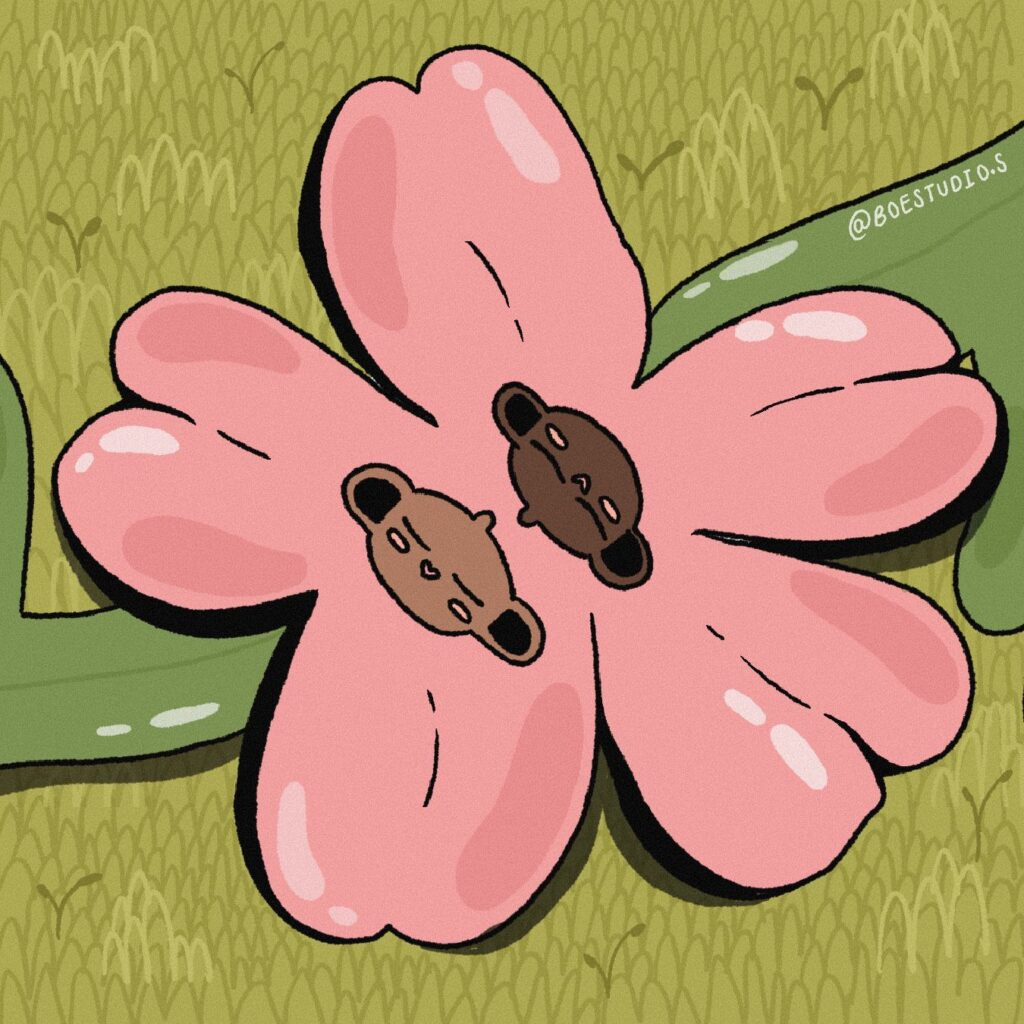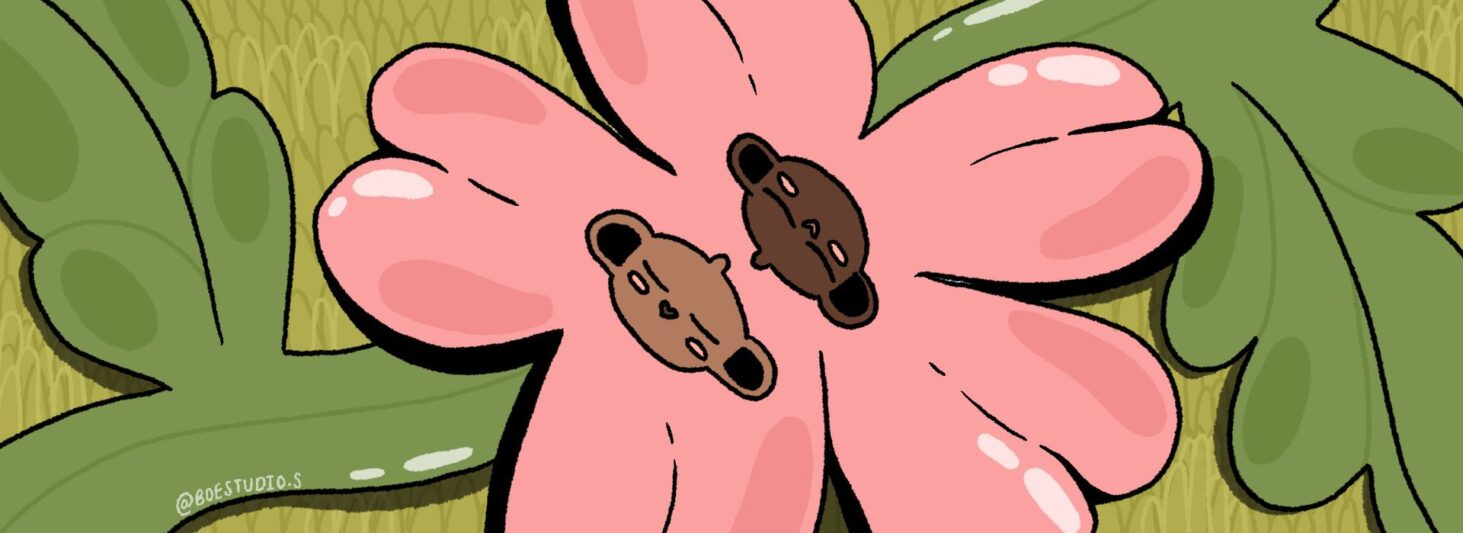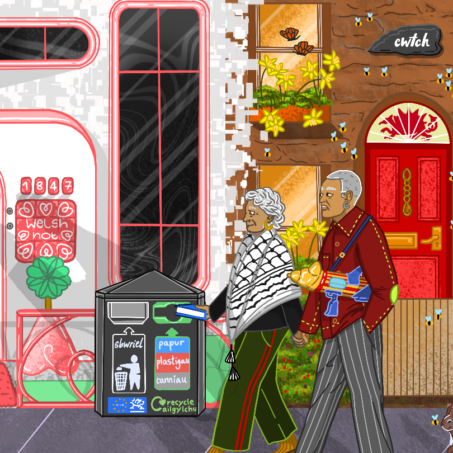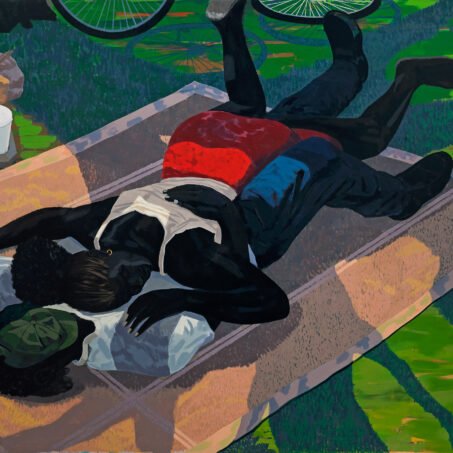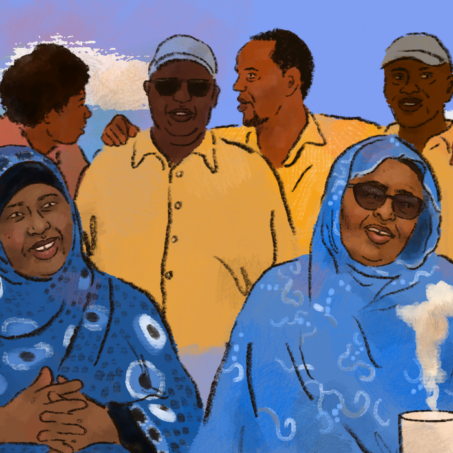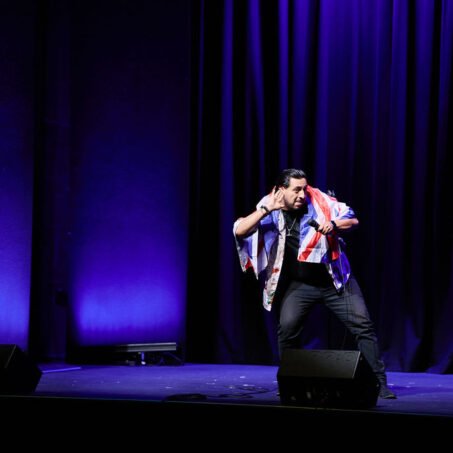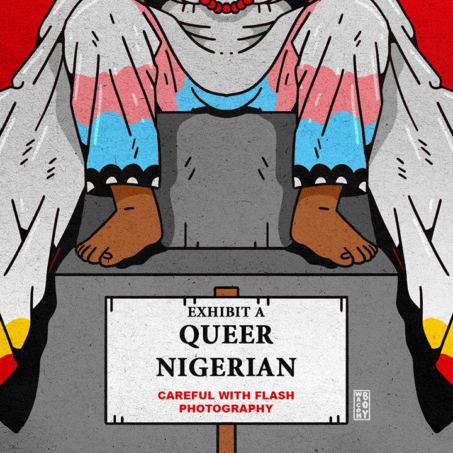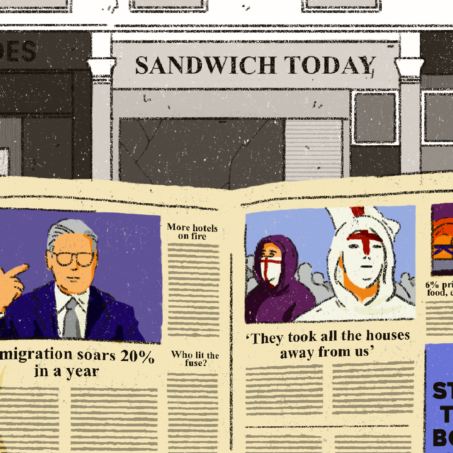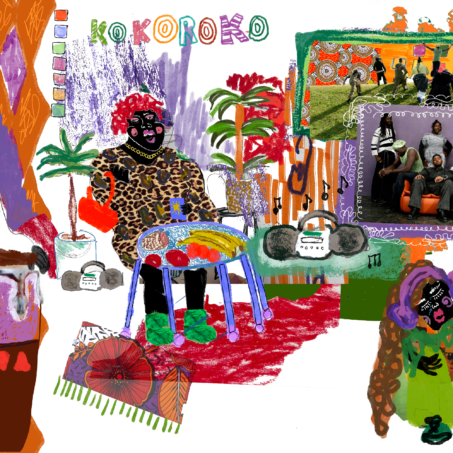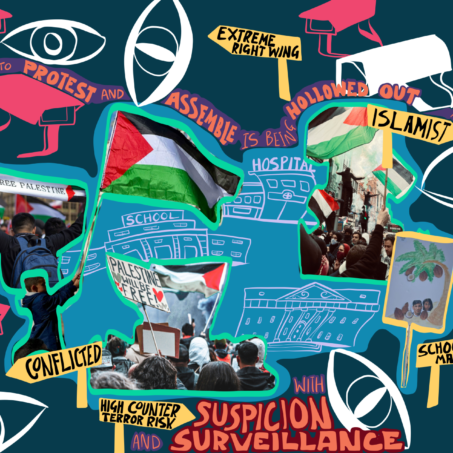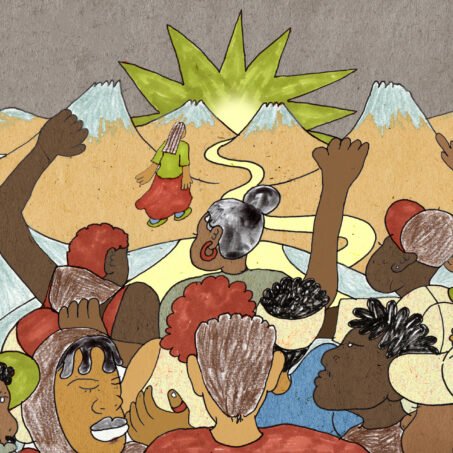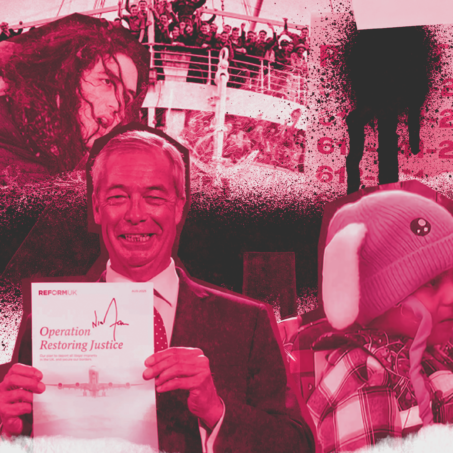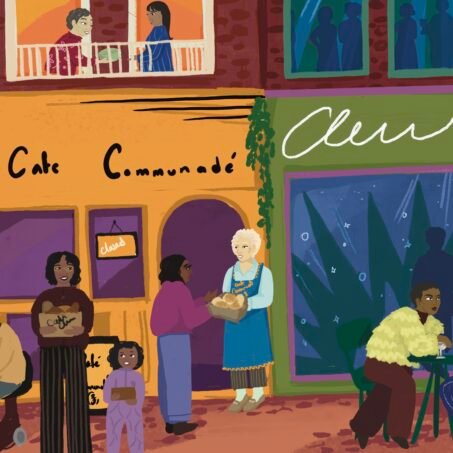Brazilian activist Chico Mendes famously said that “Environmentalism without class struggle is just gardening.” His quote is often used to highlight the necessity for intersectionality within climate activism, so that environmental movements truly fight for intersectional climate justice.
However, it also underestimates the radical power of gardening. What happens when you mix gardening with both class and queer struggles? Spaces like TopSoil emerge.
In April 2023, TopSoil began as a safe space for the queer folk of Newcastle to come together in community and garden. Sounds simple when put like that.
However, TopSoil is based on the principle that gardening is a radical act. It’s an ongoing joke that none of us really know what we’re doing, but we give it a go anyway. We operate on the basis of sharing both our skills and our knowledge, learning from each other, and taking care of each other.
We see gardening as an act that pushes against capitalism. We take things slowly, rest, look after each other and try to create a space that imagines a better way of living – the opposite of the fast-paced and intensely productive and extractive lives the capitalist system idealises. Instead of seeing ourselves as a selection of individuals in a hierarchy, we are one community working in collaboration with both each other and our wider community in Newcastle. Knowledge, skills and materials are not restricted or hoarded but shared out amongst us all and those locally who may need our support.
Gardening, belonging and queer identity
Together, we grow vegetables, flowers and herbs; we build raised beds and benches; we use the flowers we have grown to dye fabrics; we learn how to pickle the vegetables we have harvested from our beds. We have made our own paper, made a zine, visited other local grow projects and worked on the outdoor spaces of other community projects so that their members can have green spaces to enjoy too.
I joined TopSoil early on after one of the founders told me about it. I was so excited to have an open access entirely queer space to learn about nature and plants, and to work together to grow things ourselves.
As a bisexual woman who has only ever dated men, I often doubt my place in the queer community. Does my queerness count? Am I just faking it? Am I infringing on spaces for ‘actual’ queer people? Am I queer enough? Whatever ‘queer enough’ means…
Before TopSoil I wasn’t sure of my place within the queer community, more generally and locally. But being part of this gardening club where we discuss our struggles, star signs, meals and worm charming, I have found my place. Because of my little group of Geordie queers who also get super excited about tomatoes, chamomile lawns and power tools, I no longer question my queerness.
Community through gardening
I speak to one of my TopSoil friends, an illustrator and ceramicist called Alex. “I joined the group to meet other queer people in the North East in a space that felt accessible and didn’t revolve around a night out or drinking,” they tell me. “As well as wanting to learn some of the basics around gardening in an attempt to make my backyard half decent!”
The sober nature of TopSoil is something that drew me to the project as well. Don’t get me wrong, I do enjoy an occasional night out and a drink, but I much prefer more gentle ways of interacting with people.
While queer nightlife is important, it’s also important to acknowledge that queer culture is not just its clubs or bars. It’s its people and our connections with each other. It’s in our flowerbeds and seedlings as much as on the dance floor.
Gardening may be the foundation of TopSoil, but when discussing their favourite part of the sessions, members highlight its social aspect. “It’s such a wholesome start to a Friday morning,” says Alex, “sharing an activity together for a few hours before heading back to work.”
Our queer gardening club provides a few hours of respite in a queer safe haven before heading back out into the capitalist world where the daily pressures of work, bills, cleaning and ‘life admin’ keep us distracted by the world around us.
The safety of TopSoil is not confined to the two hours we spend gardening together each week – in our group chat we share local events we’re going to, books we liked, articles we read, and ask for advice with plants we’re struggling with at home. We hang out together outside of our gardening, often TopSoil members meet up at the beach to go swimming. We share our wins and our frustrations with each other – we have become each other’s cheerleaders.
“It’s not just about the gardening in the end but a sense of community and joy,” shares Jen, another member of TopSoil. “I felt like I made connections with people I’ll always cherish.”
Why queer gardening groups are needed
Being a part of TopSoil has also changed my approach to activism. TopSoil embodies the future we are fighting for: one of queer joy, community support and togetherness. Where our queerness is not at odds with our connection to nature. Nature does not fit into neat binary categories or expectations. From gay penguins to multi-partnered fungi (as described by Merlin Sheldrake in his book Entangled Life), nature defies heteronormative, binary and monogamous expectations. Or, as Alex says, “it’s all very gay, isn’t it!”
The future TopSoil imagines a future where rest, taking things slowly, connecting to the earth and producing on a small scale is not questioned but celebrated. It is anti-capitalism in action.
Even when we don’t have access to land or outdoor spaces to grow – such as in winter, or when our roof terrace was cleared by the council – TopSoil persists through the community it has created. In beach and art gallery visits, paper making and zine-producing, the community we have cultivated has grown well beyond the edges of our garden.
The question of access to land is not just an issue we have faced as a group. In fact, most queer people in the UK live in urban areas, meaning we will likely have less access to green space, clean air and land with which we can connect. In Newcastle, many of us live in Tyneside flats and if we have any outdoor space it will be a small concrete yard. That small amount of space is so important but if we want to get our hands in soil in our own space, it has to be bought.

Join our mailing list
Sign up for shado's picks of the week! Dropping in your inbox every Friday, we share news from inside shado + out, plus job listings, event recommendations and actions ✊
Sign up for shado's picks of the week! Dropping in your inbox every Friday, we share news from inside shado + out, plus job listings, event recommendations and actions ✊
Recently, TopSoil was given access to a local allotment to use alongside two other community gardening projects. It gives our work a new sense of permanency and possibility: we now have so many new options now we’re not only working from pots. In England, we only have open access to eight percent of land and uncontested access to three percent of rivers.
Findings published in 2019 show that about half of England is owned by less than 1% of its population, mostly aristocrats (including the monarchy) and corporations. This isn’t a demographic that is very representative of the queer community nor the English population as a whole. Access and connection to nature, to our local environment and to green spaces more generally, has been proven time and time again to be incredibly beneficial for our mental health, and yet 99% of us are being denied that.
In a political climate where queer lives are being threatened, trans lives especially, such unapologetically queer spaces like TopSoil are more vital than ever. Across the world anti-trans legislation is on the rise. In the UK, gender essentialists are being given mainstream platforms by the traditional media, trans healthcare is under attack and queerphobic hate crimes are on the rise.
In fact, a recent ranking of LGBT-friendly countries in Europe saw the UK receive a significant drop in its rating. ILGA-Europe, the organisation who conducts the Rainbow Europe report, identifies factors such as lack of action to tackle conversion therapy, politicians’ attitudes towards queer and particularly trans people, and regressive policies in the education system for this declined ranking.
Our history and our future
In this context, the wellbeing of queer people cannot be undervalued. Queer joy becomes resistance against a system that has the purpose of preventing it. Solidarity in the queer community has always been crucial to its survival and wellbeing. You just have to look at our history to see that. Histories of chosen family, mutual aid and community care. There are so many examples of this, but is perhaps most explicitly evident during the AIDS crisis with members of the queer community caring for each other on their sickbeds in the absence of biological family, community education and international activism from groups like ACT UP. Shows like Pose and It’s A Sin depict these dynamics. TopSoil is built on this history.
By learning about nature through the lens of community knowledge and queer ecology helps us better understand our place within it. Like humans, the natural world does not fit into neat binaries or social norms. Queerness is part of the natural world.
In this way, nature can disprove the claims by transphobes and homophobes that queerness is “unnatural” or a threat to the “natural order” or safety of others. As phrases like these are being used against trans people now, so were they used against gay people in the 80s. Queer ecology is a creative tool to tackle that kind of thinking. And queer ecology is gaining ground – from increased academic research to large-scale exhibitions like Kew Gardens’ Queer Nature which featured in one of their main glasshouses in 2023. The loud voices of transphobes cannot completely drown out the overwhelming joy that exists within the queer community and the queer natural world.
As Jen says: “Nature is queer. Nature is genderless. Nature is accepting and nourishing for everyone. Putting your fingers into soil and planting a tiny seed is truly healing for the soul.”
What can you do?
A list of recommendations from TopSoil.
Books:
- Small Space Revolution by Tayshan Hayden-Smith
- Entangled Life by Merlin Sheldrake
- Get Guerilla Gardening by Ellen Miles
- Queer Ecologies: Sex, Nature, Politics, Desire by Catriona Sandilands (available for free through university access)
- Braiding Sweetgrass by Robin Wall Kimmerer
- Lighthouse Books Queer Ecologies recommendations: Entangled and binary-free: books reflecting queer ecologies
- Green Unpleasant Land by Corinne Fowler
- How to Do Nothing: Resisting the Attention Economy by Jenny Odell
- Orwell’s Roses by Rebecca Solnit
- Hope in the Dark by Rebecca Solnit
- Radical Gardening: Politics, Idealism & Rebellion in the Garden by George Mckay
- Life in the City of Dirty Water by Clayton Thomas-Müller
- Unearthed by Claire Ratinon
Queer Community Gardens (or set up your own!)
- TopSoil, Newcastle-upon-Tyne
- Rainbow Grow, Hackney
- Wet Patch, Sheffield
Contributors to Kew Gardens’ Queer Nature Exhibition:
- Jeffrey Gibson
- Patrick Featherstone
- El Hardwick
- Sixto-Juan Zavala
- Lee Davies
- Dr Suzanne Moss
- Maymana Arefin
- Lili K Bright
- Ama Josephine Budge Johnstone
- Dr Maria (Bat) Vorontsova
- Cheddar Gorgeous
Organisations:
- Queer Nature
- Right to Roam
- Fossil Free Pride
- Land in Our Names (LION)
- Critical Ecology Lab
- Compost Mentis
Articles and newsletters:
- Queer environmental activists warn of LGBTQ+ people ‘suffering first’ from catastrophic climate change
- Radicle newsletter
- For Willow Defebaugh, Queerness Is About Coming Home to Your Body
- How to Queer Ecology One Goose at a Time
- Queer Ecology, Explained
- Queer Ecology – embracing diversity in the natural world
Podcasts:
